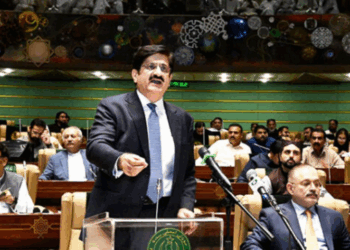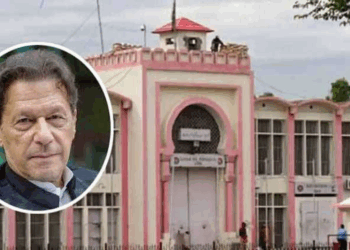Islamabad, June 9, 2025: The Pakistan Meteorological Department (PMD) has issued a countrywide heatwave alert from June 9 to 12, warning of dangerously high temperatures driven by the development of a high-pressure system over the region.
According to the Met Office, daytime temperatures are expected to soar 5 to 7°C above normal in parts of central and upper Punjab, Islamabad, Khyber Pakhtunkhwa, Kashmir, and Gilgit-Baltistan. Meanwhile, areas in upper and central Sindh, southern Punjab, and parts of Balochistan are likely to experience temperatures 4 to 6°C higher than the seasonal average.
The PMD has cautioned that hot and dry continental air will dominate most parts of the country, and dust storms or gusty winds may affect the plains due to thermal gradients caused by intense surface heating.
0In its advisory, the PMD urged citizens to avoid unnecessary exposure to sunlight, especially during peak afternoon hours. Vulnerable populations—such as children, the elderly, and outdoor laborers—have been strongly advised to take extra precautions, remain indoors, and stay hydrated.
Medical professionals warn that prolonged exposure to extreme heat can lead to heat exhaustion or heatstroke. Dr. Seemi Jamali, former executive director of JPMC, stressed in a televised interview that “communities must recognize early signs of heat-related illness, such as dizziness, nausea, or confusion, and seek immediate medical attention.”
Meteorologists and climate scientists have also raised alarms over the implications for northern Pakistan. The rise in temperatures is expected to accelerate glacial and snowmelt in Gilgit-Baltistan and the upper reaches of Khyber Pakhtunkhwa, increasing the risk of glacial lake outburst floods (GLOFs) and high stream flows in local rivers.
According to the Global Climate Risk Index by Germanwatch, Pakistan remains one of the top 10 countries most vulnerable to climate-induced disasters. Accelerated snowmelt not only raises flood risks but also threatens long-term water security by depleting glacial reserves faster than they can be replenished.
On Sunday, extreme heat gripped most parts of the country. Jacobabad once again emerged as one of the hottest places on Earth, recording a sweltering 50°C. Other cities following closely included as Dadu 49°C, Sibi – 49°C, Bahawalnagar, Rahim Yar Khan, and Shaheed Benazirabad – 47°C.
Major urban centers like Lahore, Faisalabad, Multan, and Peshawar also experienced severe heat, with temperatures hovering around 44–46°C.








